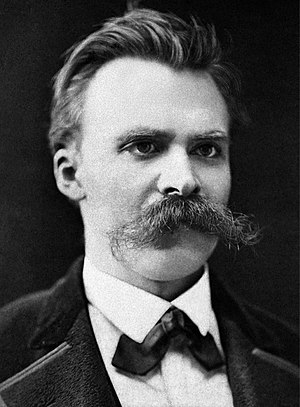
“Each day I count wasted in which there has been no dancing.”
Share this quote:
“Modest people have often reason to be.”
Share this quote:
“To show pity is felt as a sign of contempt because one has clearly ceased to be an object of fear as soon as one is pitied.”
Share this quote:
It is not a lack of love, but a lack of friendship that makes unhappy marriages.
Share this quote:
There is always some madness in love. But there is also always some reason in madness.
Share this quote:
The man of knowledge must be able not only to love his enemies but also to hate his friends.
Share this quote:
One ought to hold on to ones heart; for if one lets it go, one soon loses control of the head too.
Share this quote:
Amor Fati – “Love Your Fate”, which is in fact your life.
Share this quote:
Ultimately, it is the desire, not the desired, that we love.
Share this quote:
Love is a state in which a man sees things most decidedly as they are not.
Share this quote:
The spiritualization of sensuality is called love: it is a great triumph over Christianity.
Share this quote:
Love, too, has to be learned.
Share this quote:
He who has a why to live for can bear almost any how.
Share this quote:
What, if some day or night a demon were to steal after you into your loneliest loneliness and say to you: This life as you now live it and have lived it, you will have to live once more and innumerable times more ... Would you not throw yourself down and gnash your teeth and curse the demon who spoke thus? Or have you once experienced a tremendous moment when you would have answered him: You are a god and never have I heard anything more divine.
Share this quote:
Art is the proper task of life.
Share this quote:
Is life not a thousand times too short for us to bore ourselves?
Share this quote:
The overman...Who has organized the chaos of his passions, given style to his character, and become creative. Aware of lifes terrors, he affirms life without resentment.
Share this quote:
In the end things must be as they are and have always been--the great things remain for the great, the abysses for the profound, the delicacies and thrills for the refined, and, to sum up shortly, everything rare for the rare.
Share this quote:
He who has attained the freedom of reason to any extent cannot, for a long time, regard himself otherwise than as a wanderer on the face of the earth - and not even as a traveler towards a final goal, for there is no such thing. But he certainly wants to observe and keep his eyes open to whatever actually happens in the world; therefore he cannot attach his heart too firmly to anything individual; he must have in himself something wandering that takes pleasure in change and transitoriness.
Share this quote:
Without music, life would be a mistake.
Share this quote: